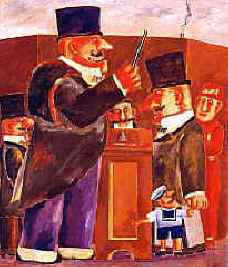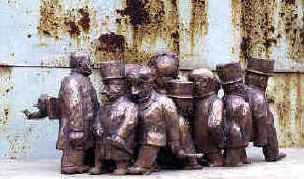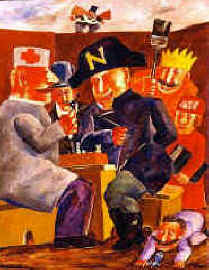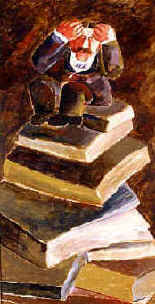
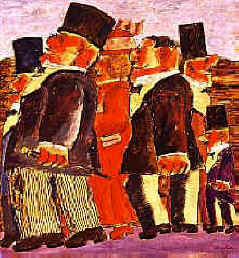
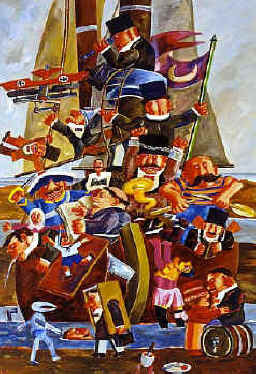
WORKS AND PRESENTATIONS
PRESENTATION
EXTRACTS FROM MONOGRAPHIES, CATALOGUES AND MAIN NEWSPAPERS
Home Page Public Exhibitions Biography Bibliography International Fairs PublicAuctions
All
the works introduced in this site belong to public and private collections.



" In Borghese is
reflected the drama (or the comedy) of the contemporary artist, who, in order to
search any trurh, is obliged to operate in an evidently false dimension; "figures"
as the ancients told, situations and characters whose "poetic truth"
necessary presupposes the falsity established by formal logic. So, we find in
the works endless contradictions, unbalances and unfathomable mysteries, that
may be cleared only by that equally less logically believable capacity that is
the aesthetical intuition. In this way the more the homage is "incredible",
the more it gets artistically efficacious, the less you understand it, the more
it succeeds in involving us. (On the contrary we will reject all that is a copy,
or mere declaration of things and ideas, as talkative moments out of the reality
- and it would be better to say out of the artistic unreality). To return
directly to the works of Franz Borghese, I would say that first of all he has
chosen the place of his imagination like the first chess player could have
chosen that field of reflexed actions that the chess-board is. Afterwards he has
built his characters through which he could lead the game, lastly he has begun
to move them according rules, which are more or less valid for everybody.
However he could not dominate them completely and he throws on them what he
usually throws in the relationship with the others, illusions and sarcasm,
irony and passion, trust and distrust. So it happened that between the
demiurge-artist and his creatures develop very particular relations,
interchanges with more or less direct allusions to the world of the everyday
things that is the world of the "others" as well. They can also feel
involved, at least as spectators in the game of the allusions, transformed in
factory of poetic illusions.
Rome
1973
Franco Solmi
(Franz
Borghese - Publishing House La Nuova Foglio - Pollenza - MC )
